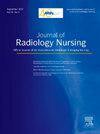Unleashing the Power to Serve: Engaging Nurses in the Community
Q3 Nursing
引用次数: 0
Abstract
A deep-seated commitment to serve humanity is rooted in the profession of nursing and perpetuates the call to serve, whether volunteering in a professional role or serving as a lay volunteer. Volunteer opportunities abound for nurses across all career phases and nursing subspecialties. Nurses’ education and experience make them well suited to volunteer in both direct and indirect care roles. Volunteering has been found to improve physical and mental health and life satisfaction for both volunteers and the communities they serve. Communities served by nurse volunteers are empowered through the human and material resources they offer, leading to greater health improvements and the adoption of a culture of health within the community. Benefits to the nurse include personal satisfaction; increased awareness of healthcare challenges and impact of culture on health disparities; increased competency, advocacy, and career choice; and improved networking. Community engagement activities may be part of a paid role or a volunteer initiative. Potential challenges of community engagement to nurses include physical demands, mental fatigue, threats to health and safety, and culture shock. When assessing volunteer opportunities, the nurse should consider the alignment of their values and goals with the volunteer experience, the supports available to the volunteer in the form of training, safety and risk management, and recognition and rewards, and the reputation and credibility of the sponsoring organization. Volunteerism may be motivated by a sense of mission and purpose or may lead to a renewed vision and purpose that motivates persons to continue to give back, thus sustaining volunteer engagement over time.
释放服务的力量:参与社区护理
为人类服务的根深蒂固的承诺根植于护理职业,并使服务的呼吁永存,无论是以专业角色志愿服务还是作为非专业志愿者服务。护士在所有职业阶段和护理亚专业都有大量的志愿者机会。护士的教育和经验使她们非常适合志愿从事直接和间接的护理工作。人们发现志愿服务可以改善志愿者和他们所服务的社区的身心健康和生活满意度。志愿护士所服务的社区通过其提供的人力和物质资源获得能力,从而更大程度地改善健康状况,并在社区内采用健康文化。对护士的好处包括个人满意度;提高对保健挑战和文化对保健差异的影响的认识;提高能力、宣传和职业选择;改善人际关系。社区参与活动可能是有偿角色或志愿者倡议的一部分。社区参与对护士的潜在挑战包括身体需求、精神疲劳、健康和安全威胁以及文化冲击。在评估志愿者机会时,护士应该考虑他们的价值观和目标与志愿者经历的一致性,志愿者在培训、安全和风险管理、认可和奖励方面的支持,以及赞助组织的声誉和信誉。志愿服务的动机可能是一种使命感和目标感,也可能是一种新的愿景和目标,激励人们继续回馈,从而长期保持志愿者的参与。
本文章由计算机程序翻译,如有差异,请以英文原文为准。
求助全文
约1分钟内获得全文
求助全文
来源期刊

Journal of Radiology Nursing
Nursing-Advanced and Specialized Nursing
CiteScore
0.80
自引率
0.00%
发文量
95
审稿时长
57 days
期刊介绍:
The Journal of Radiology Nursing promotes the highest quality patient care in the diagnostic and therapeutic imaging environments. The content is intended to show radiology nurses how to practice with compassion, competence, and commitment, not only to patients but also to the profession of nursing as a whole. The journal goals mirror those of the Association for Radiologic & Imaging Nursing: to provide, promote, maintain , and continuously improve patient care through education, standards, professional growth, and collaboration with other health care provides.
 求助内容:
求助内容: 应助结果提醒方式:
应助结果提醒方式:


